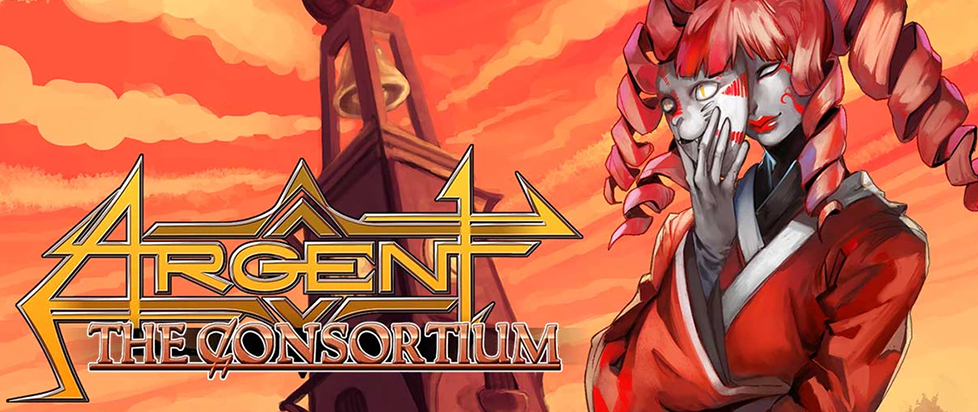
Argent and the Struggle for Power
It took me half an hour to set up Argent: The Consortium. There were far more components involved than the relatively slim box suggested, and the table space required was borderline comical. Once everything was set up, a sprawling plain of cardboard was spread out before us, inviting the group to the daunting task of actually playing the damn thing.
“I don’t know about this,” Kyle said.
Neither did I, but I wasn’t about to say it aloud. Beginning the game felt nearly insurmountable, like climbing a cardboard Everest. The rulebook, while mostly clear, is just wordy enough that I found myself half questioning everything as I explained the rules to the rest of the table.
“There are several different types of mages,” I explained, “and they all do different things.”
“So I just pick one color?” someone asked.
“No, we all get to use whichever color we want,” I said. “At least I think so.”
I attempted shake off any uncertainty I felt after reading the rules as we sat and began the first round. Luckily, by the time we were in the third round, everything had clicked.
To understand the gameplay of Argent by designer Trey Chambers, I found that it’s easiest to think about it in terms of theme. The game takes place at a magical university [placeholder Hogwarts reference text] where a new dean is to be elected via democratic process. We the players are all vying for votes, and votes are the only thing that matters. Everything is done in service of votes.
Like any political campaign, the crux of earning influence is navigating a maze of savvy maneuvers and publicity stunts. Earn enough supporters and you might get yourself a vote from Luna Van Kassel, the Dean of Students. Focus on gold and Gerard Matranga, the Mercenary King, might throw in for you. But you can’t limit yourself to just two or three different avenues. Votes are precious, and most games are going to be decided by only one or two of them. There are 12 voters in each game, so you need to spread out and make your presence known in every aspect of the school.
To that end, a round of Argent truly feels like jostling for political position. It’s worker placement, yes, but placement rewards aren’t given out until the end of a round. What this means is that you’ll spend the round elbowing opponents out of the way in an attempt to snag the best resources and trying to find a way to out maneuver the competition. Using a sorcerer to send an opposing mage to the infirmary clears up a worker space, but using one too early in the round might put a target on your back. Oddly, it reminded me of a simpler, pared down Twilight Struggle. More importantly, it felt so very thematic. There are a lot of rules to Argent, it’s true, but they gel in such an organic way that I never once questioned their design. In several cases, understanding one rule meant I understood the function of other rules.
It’s also worthwhile to talk about the gender balance in Argent. The player characters are evenly split between male and female, which is a balance that the board gaming hobby as a whole struggles with. Baby steps have been taken over the last several years to strike that balance, but there is still a long way to go. It’s nice to see games like Argent demonstrate that kind of awareness, but that it’s still in the minority is very telling of a larger systemic problem.
In our post-game discussion of Argent, we felt exhausted, but in a satisfied way. Leaning back in our chairs, we took in the table as a whole, reflecting on the choices we made and theorizing what we could have done different. This, I think, is some of the highest praise I can offer a game. It meant that we would play again soon, that we were looking forward to it. We had climbed Everest and wanted to relive the ascent. The worker placement genre is a crowded one, and standing out is a climb in itself. Argent’s setting and thematically appropriate mechanics do a solid job on that front and left a good taste in my mouth.





